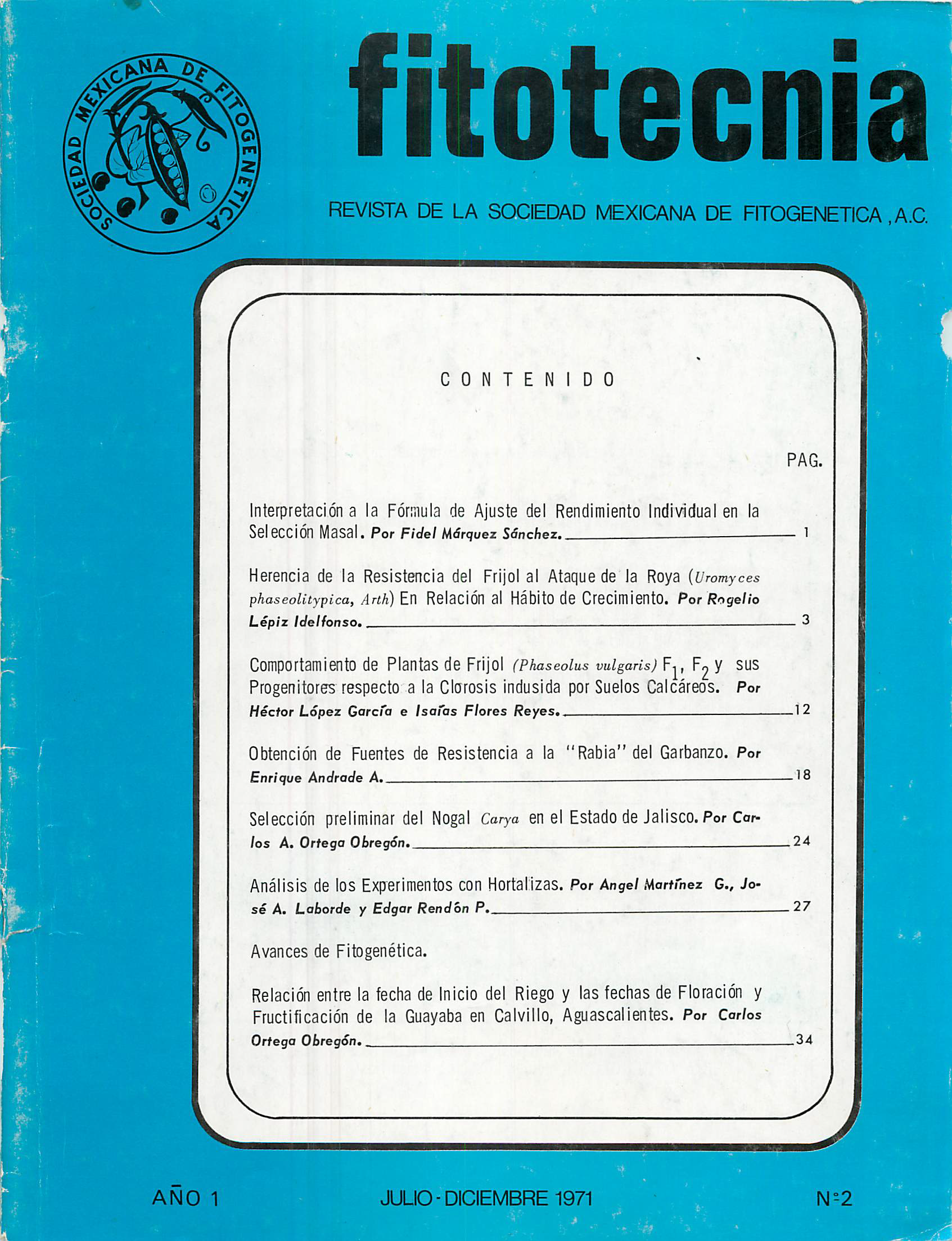BEHAVIOR OF BEAN PLANTS (Phaseolus vulgaris) F1, F2 AND THEIR PARENTS REGARDING CHLOROSIS INDUCED BY CALCAREOUS SOILS
Main Article Content
Abstract
Influence oí calcareous soils of the northeast part of Mexico on cultivars has been important due to the strong chlorosis that it
causes. The Experiment Station of ITESM (Technological Institule of Superior Studies of Monterrey) has this type of soil. This factor makes bean crops nol suitable for its commercial production. In order to solve this problem, germplasm introductions and soil acid conditioners as well as major and minor elements applications have been used. As an attempt obtain adapted indi viduals to this soil condition objetives of this study were to induce genetic variation through hybridization, to detennine a method to meas ure chlorosis and to evaluate the F2 generations and their parents under field conditions. Resulta indicated that those parents with the least chlorosis under green house conditions were involved in the best yielding and least chlorotic crosses under field conditions. Chlorophyl extracta used in the chlorosis evaluation were very useful in the selection of desired individuals. Evaluation in F2 for yield showed advances of 10.9, 21,4 and 46.9% in each of three crosses.

